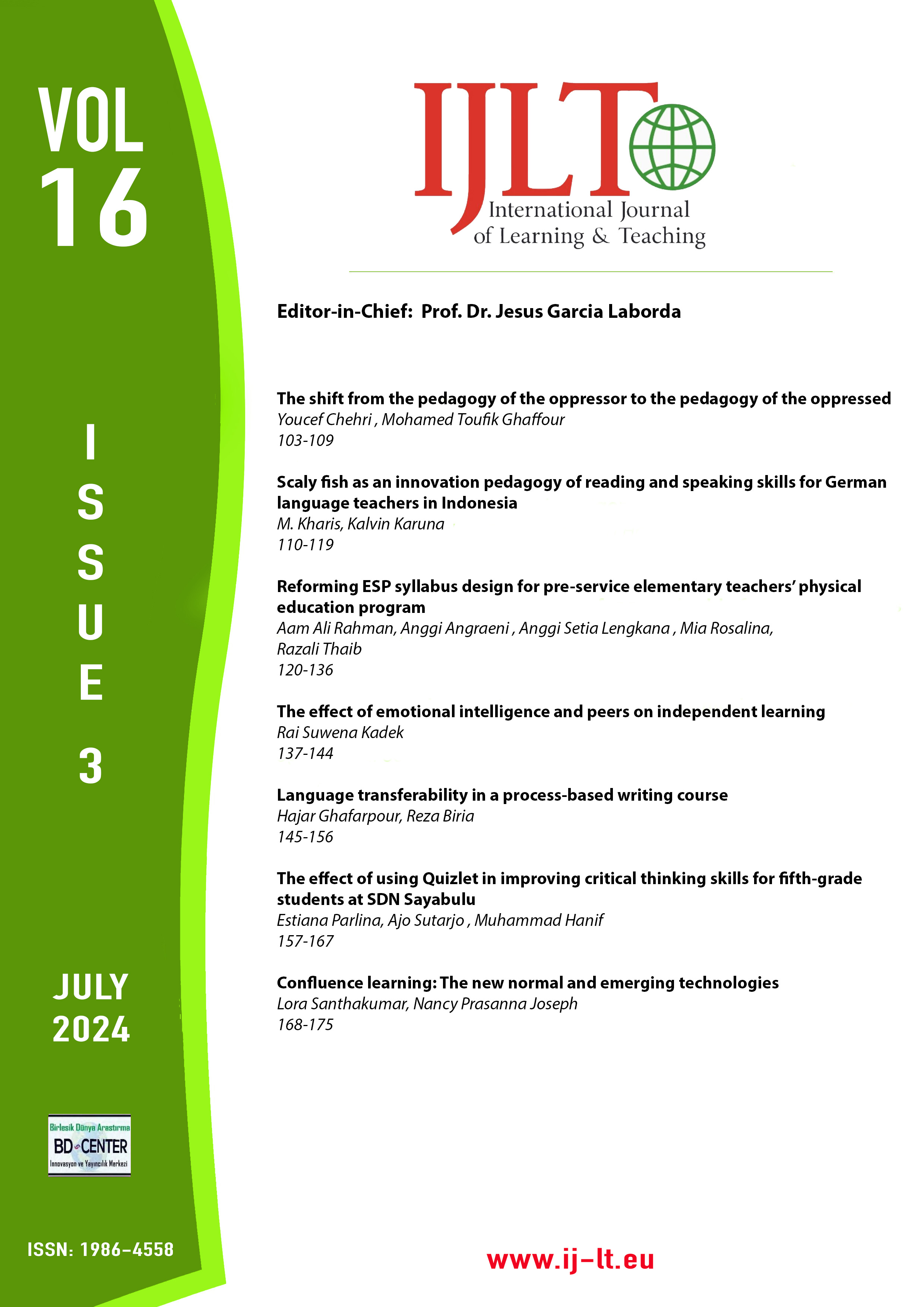The shift from the pedagogy of the oppressor to the pedagogy of the oppressed
Main Article Content
Abstract
Teaching in a postmodern world represents a significant challenge. It is well-established that postmodernism is an intellectual stance or mode of discourse defined by skepticism toward modernist ideologies. This study investigates the challenges faced by teachers in the context of postmodernism, and the shift from a traditional to a postmodern teaching approach. The current study examines the work of Paulo Freire’s The Pedagogy of the Oppressed, which helps weave a comprehensible reflection on the postmodern thought’s impact on teaching as a discipline. In this context, the current study is presented as a means of criticism of teaching in a traditional context emphasizing the new methods used to teach literary texts and foreign languages. The results show that the postmodern way of thinking in teaching literature opposes modernity’s teacher-centered ideas. The findings suggest that postmodernism’s opposition to the traditional teaching approach marks a shift, ultimately, in teaching literature and Foreign Languages.
Keywords: Postmodernism; postmodern approach; teaching literature; traditional approach; the pedagogy of the oppressed.
Downloads
Article Details

This work is licensed under a Creative Commons Attribution-NonCommercial-NoDerivatives 4.0 International License.
Authors who publish with this journal agree to the following terms:
- Authors retain copyright and grant the journal right of first publication with the work simultaneously licensed under a Creative Commons Attribution License that allows others to share the work with an acknowledgement of the work's authorship and initial publication in this journal.
- Authors are able to enter into separate, additional contractual arrangements for the non-exclusive distribution of the journal's published version of the work (e.g., post it to an institutional repository or publish it in a book), with an acknowledgement of its initial publication in this journal.
- Authors are permitted and encouraged to post their work online (e.g., in institutional repositories or on their website) prior to and during the submission process, as it can lead to productive exchanges, as well as earlier and greater citation of published work (SeeThe Effect of Open Access).
